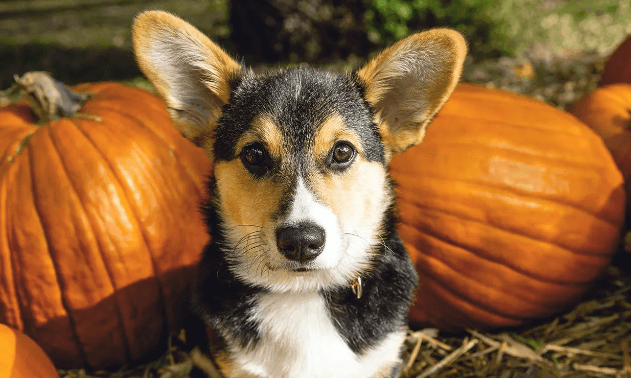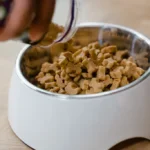Pumpkin, a beloved fall staple, isn’t just reserved for human consumption. Many pet owners are discovering the benefits of incorporating pumpkin into their dog’s diet. From aiding in digestion to providing essential nutrients, pumpkin can be a nutritious addition to your furry friend’s meals. However, the key is moderation and understanding how much pumpkin is suitable for your dog’s size and health. In this article, we’ll explore the benefits of feeding pumpkin to dogs and guide you on determining the appropriate amount for your canine companion.
Table of Contents
The Nutritional Benefits of Pumpkin for Dogs:
Before delving into the quantity, let’s explore why pumpkin is considered a healthy choice for dogs. Pumpkin is a nutrient-rich food that offers various advantages for your pet’s well-being.
Fiber Boost: Pumpkin is an excellent source of dietary fiber. It can aid in maintaining a healthy digestive system by regulating bowel movements and preventing constipation or diarrhea. The soluble fiber in pumpkin helps absorb excess water in the intestines, promoting a balanced stool consistency.
Nutrient Powerhouse: Packed with essential vitamins and minerals, including vitamin A, vitamin C, potassium, and beta-carotene, pumpkin for your dog’s overall health. These nutrients support immune function, promote healthy skin and coat, and contribute to optimal organ function.
Hydration Assistance: Pumpkin has a high water content, contributing to your dog’s hydration. This is especially beneficial for dogs who may not drink enough water or during warmer seasons when staying well-hydrated is crucial.
Determining the Right Amount:
While pumpkin can offer numerous benefits, it’s crucial to introduce it gradually and monitor your dog’s response. The appropriate amount depends on factors such as your dog’s size, weight, and individual health needs. Here are general guidelines to help you determine the right quantity of pumpkin for your furry friend:
Small Dogs (Up to 15 lbs): Start with 1 to 2 tablespoons of plain, cooked, or canned pumpkin. Monitor your dog’s response and adjust accordingly. Small breeds may require less pumpkin due to their size.
Medium Dogs (15 to 50 lbs): Offer 2 to 4 tablespoons of pumpkin per day. Adjust based on your dog’s specific needs and any signs of digestive discomfort.
Large Dogs (50 lbs and Above): Larger dogs can generally tolerate a bit more pumpkin. Begin with 4 to 6 tablespoons and observe how your dog reacts. Adjust the quantity as needed.
Monitoring Your Dog’s Response:
Introducing any new food into your dog’s diet requires careful observation. Watch for signs of allergies, digestive upset, or changes in stool consistency. If your dog experiences diarrhea or constipation, it might be an indication that you need to adjust the amount of pumpkin.
Additionally, if your dog has an existing medical condition or is on a special diet, consult your veterinarian before incorporating pumpkin. Some dogs may have dietary restrictions, and it’s essential to ensure that adding pumpkin aligns with your dog’s overall health plan.
Pumpkin Preparations for Dogs:
When offering pumpkin to your dog, choose plain, unsweetened, and canned pumpkin without added spices or seasonings. Avoid pumpkin pie filling, as it often contains sugars and additives that can be harmful to dogs.
You can mix pumpkin into your dog’s regular food or serve it as a standalone treat. Some pet owners freeze pumpkin in ice cube trays for a refreshing and hydrating summer treat.
Conclusion:
In conclusion, pumpkin can be a valuable addition to your dog’s diet when introduced in appropriate quantities. Its nutritional benefits, including fiber, vitamins, and hydration assistance, make it a versatile and healthy option for many dogs. Remember to start with small amounts, monitor your dog’s response, and adjust accordingly.
Always prioritize the well-being of your furry friend by consulting with your veterinarian before making significant changes to their diet. With the right approach, you can harness the nutritional power of pumpkin to contribute to your dog’s overall health and happiness.





